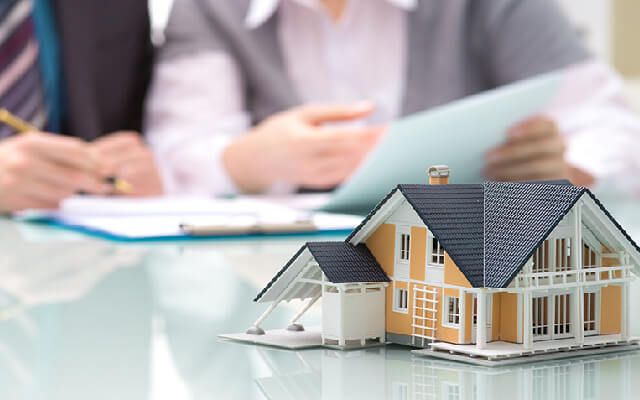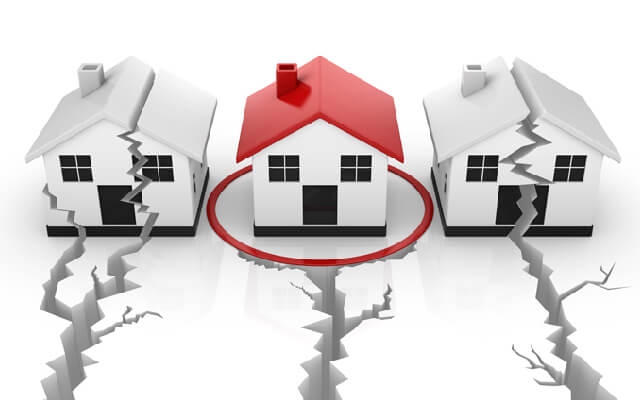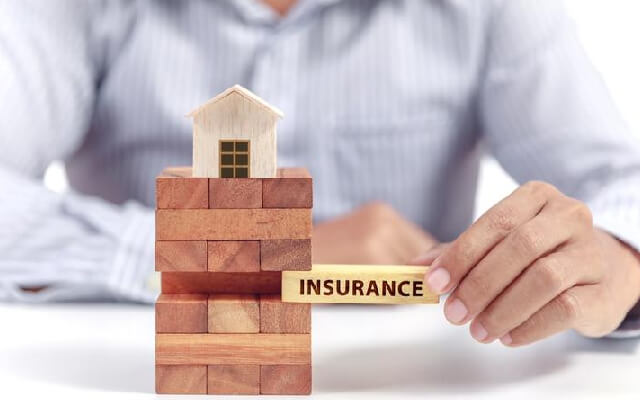In today’s ever-changing world, it is imperative for homeowners to prioritize the safety and maintenance of their homes. This article aims to provide essential tips and guidance on various aspects of home safety and maintenance.
The first aspect that will be covered is fire safety measures. This includes tips on installing smoke detectors, creating a fire escape plan, and maintaining fire extinguishers. These measures are crucial in protecting the home and its occupants from the devastating effects of a fire.
Next, the article will discuss water damage prevention. This section will cover topics such as proper drainage, regular inspection of plumbing systems, and the importance of addressing leaks promptly. By taking these precautions, homeowners can prevent costly water damage and mold growth.
Another important topic that will be addressed is home security against break-ins. This section will provide tips on installing security systems, reinforcing doors and windows, and implementing good security practices. By following these measures, homeowners can deter potential burglars and protect their property.
The article will also touch on electrical safety maintenance. This includes advice on inspecting electrical outlets and cords, avoiding overloading circuits, and hiring a professional for electrical repairs. These precautions are essential in preventing electrical fires and ensuring the safe operation of electrical systems.
Lastly, the article will cover outdoor maintenance. This section will provide tips on maintaining the exterior of the home, such as cleaning gutters, trimming trees and bushes, and inspecting the roof. By keeping up with outdoor maintenance, homeowners can prevent damage to their property and enhance its curb appeal.
By implementing these measures, homeowners can ensure a secure living environment that minimizes potential risks and maximizes comfort. This comprehensive resource offers knowledgeable insights and informative details tailored for an audience seeking a deeper understanding of home safety and maintenance practices.
Essential Fire Safety Measures
One crucial aspect of home safety involves implementing essential fire safety measures. These measures include proper fire extinguisher placement and smoke alarm installation.
Fire extinguishers are an important tool for quickly suppressing small fires before they have a chance to spread and cause significant damage. It is recommended to have at least one fire extinguisher on each level of the house, with additional units in areas where fires are more likely to start, such as the kitchen or garage. The extinguishers should be easily accessible and mounted securely on walls or placed in clearly marked cabinets.
In addition to fire extinguishers, smoke alarms play a vital role in alerting occupants of a potential fire hazard. Smoke alarms should be installed in every bedroom, outside each sleeping area, and on every level of the home. They should be tested regularly to ensure that they are functioning correctly and have fresh batteries replaced annually.
Proper placement of both fire extinguishers and smoke alarms is crucial for effective fire safety. Homeowners must follow manufacturer guidelines regarding height, distance from potential hazards, and regular maintenance procedures for these devices.
Preventing Water Damage
To prevent water damage, implementing proper drainage systems and regularly inspecting and maintaining the integrity of the building’s foundation are crucial measures to take. Water damage can have serious consequences for both the structural stability of a building and the health of its occupants. Here are four key tips for preventing water damage:
- Early detection: Install water leak detection devices in areas prone to leaks, such as basements, bathrooms, and kitchens. These devices can detect even small amounts of moisture and alert homeowners to potential issues before they escalate.
- Moisture control: Maintain optimal humidity levels within your home by using dehumidifiers in damp areas such as basements or crawl spaces. Proper ventilation is also important to allow moisture to escape from bathrooms, laundry rooms, and other high-moisture areas.
- Regular inspections: Inspect your roof at least twice a year for any signs of damage or wear that could lead to leaks during heavy rainstorms. Check gutters and downspouts regularly to ensure they are clear of debris and functioning properly.
- Foundation maintenance: Periodically inspect your foundation for cracks or signs of water infiltration. Repair any cracks promptly, as they can widen over time and allow water to seep into your home.
Securing Your Home Against Break-ins
Securing a home against break-ins involves implementing various security measures to deter potential intruders. Homeowners can employ several strategies to enhance the safety of their property and protect their belongings.
One effective method is the installation of home security systems, which consist of a combination of devices such as alarms, surveillance cameras, and motion sensors. These systems provide round-the-clock monitoring and can immediately alert homeowners or authorities in case of any suspicious activity.
Additionally, neighborhood watch programs have proven to be valuable tools in preventing break-ins. These community-based initiatives encourage residents to work together by keeping an eye on each other’s properties and reporting any unusual behavior to the appropriate authorities. By fostering a sense of shared responsibility within the neighborhood, these programs create a stronger deterrent against potential intruders.
Maintaining Electrical Safety
Ensuring the proper maintenance of electrical systems is essential for preventing potential hazards and promoting a safe environment. Electrical hazard prevention and implementing necessary electrical safety precautions are crucial for homeowners to minimize the risk of accidents or damage caused by faulty wiring or equipment.
Here are four important tips to maintain electrical safety in your home:
- Regular Inspections: Schedule periodic inspections by a licensed electrician to identify any potential issues such as loose connections, outdated wiring, or overloaded circuits. This will help you address problems before they escalate into serious hazards.
- Upgrading Outdated Wiring: If your home has old or outdated wiring, consider upgrading it to meet current safety standards. Old wiring can be more susceptible to wear and tear, increasing the risk of electrical fires.
- Proper Use of Electrical Appliances: Avoid overloading outlets with multiple appliances and always follow manufacturer instructions regarding proper usage and maintenance of electrical devices. Unplug appliances when not in use to reduce the risk of electrical faults.
- Ground Fault Circuit Interrupters (GFCIs): Install GFCIs in areas where water is present, such as bathrooms, kitchens, garages, and outdoor spaces. These devices quickly cut off power if they detect an imbalance in current flow, reducing the likelihood of electric shocks.
Outdoor Maintenance for a Safe Home
Implementing regular outdoor maintenance practices is crucial for minimizing potential hazards and creating a safe living environment. Proper garden maintenance plays a significant role in ensuring the safety of homeowners. Regularly trimming trees and shrubs prevents overgrowth, which can obstruct walkways or interfere with electrical wires. It also reduces the risk of falling branches during storms or strong winds that could damage property or cause injury. Additionally, maintaining a well-maintained garden helps prevent the accumulation of dry leaves or debris, reducing the risk of fire hazards.
Driveway upkeep is equally important for home safety. Regularly inspecting and repairing cracks or potholes in the driveway minimizes tripping hazards and prevents accidents caused by uneven surfaces. Keeping driveways clear from ice, snow, or other slippery substances during winter months reduces the risk of falls.
Furthermore, implementing proper drainage systems around gardens and driveways is essential to avoid water accumulation that can lead to slippery surfaces or damage to foundations. Regularly clearing gutters and downspouts ensures efficient water flow away from the house, preventing potential flooding problems.
Frequently Asked Questions
What Are Some Common Causes of House Fires That Homeowners Should Be Aware Of?
Common causes of house fires include electrical malfunctions, cooking accidents, heating equipment failures, smoking materials, and candles left unattended. Implementing fire prevention measures and practicing home safety can help mitigate these risks.
How Can Homeowners Prevent Water Damage Caused by Plumbing Issues?
Preventive measures, such as regular professional inspections and maintenance of plumbing systems, can help homeowners avoid water damage caused by plumbing issues. These practices ensure early detection and resolution of potential problems, minimizing the risk of costly repairs.
What Are Some Effective Ways to Secure Windows and Doors to Prevent Break-Ins?
Window security options include window locks, security film, and window bars. Door reinforcement techniques consist of using deadbolts, door jammers, and reinforced strike plates. These measures help prevent break-ins by increasing the security of windows and doors.
How Often Should Electrical Systems Be Inspected and Maintained to Ensure Safety?
The frequency of electrical system inspections and maintenance to ensure safety can vary depending on factors such as the age and condition of the system. Signs of damage, such as flickering lights or tripping breakers, should prompt immediate attention.
What Outdoor Maintenance Tasks Should Homeowners Prioritize to Maintain a Safe Home Environment?
Outdoor maintenance tasks that homeowners should prioritize to maintain a safe home environment include regular inspection and cleaning of gutters, trimming overgrown trees and shrubs, repairing cracks in the driveway or walkways, and ensuring proper drainage around the house.
Conclusion
In conclusion, homeowners must prioritize home safety and maintenance to ensure a secure living environment. By implementing essential fire safety measures, such as installing smoke alarms and fire extinguishers, one can significantly reduce the risk of fire-related accidents.
Preventing water damage through proper drainage systems and regular inspections can help avoid costly repairs and structural issues. Securing the home against break-ins with robust locks and security systems is crucial for personal safety.
Lastly, maintaining electrical safety by regularly checking wiring and appliances reduces the risk of electrical fires. Additionally, outdoor maintenance plays a vital role in ensuring a safe home by addressing potential hazards like overgrown trees or unstable structures.
A proactive approach to home safety is key to creating a secure haven for homeowners.











